CAMELS , The SHIP Of The DESERT
THE SHIPS OF THE DESERT
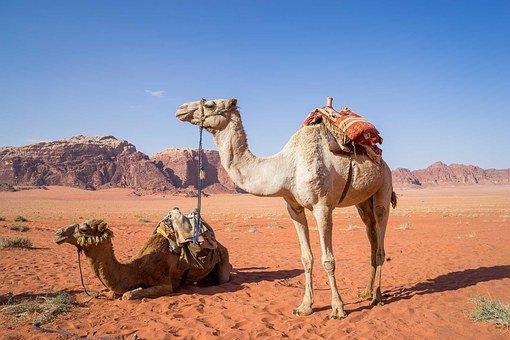
They are known as the ship of the desert or should I say I my view the ancient Titanic due to the evolution of advanced technologies that makes them to be forgotten for their primary purpose.
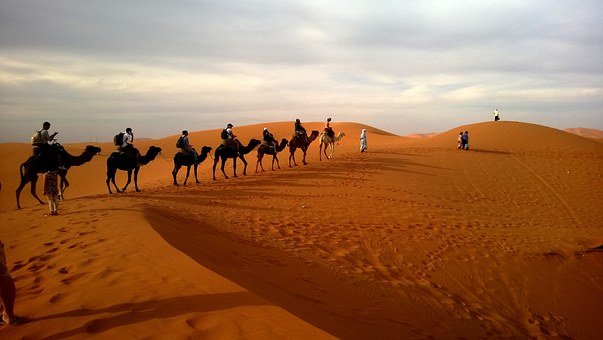
CAMELS are social herbivorous mammals that are found mostly in desert or arid regions.
There are 2 types of camels, viz
- Asian camels with two humps known as Bactrian camel and are found in Central Asia, North-West China
- Arabian camels with one hump known as Dromedary camels and are found in the Middle East and countries at the Horn of Africa.
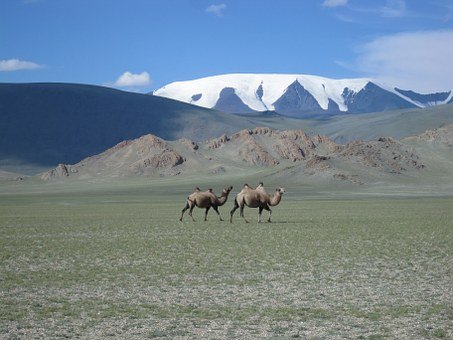
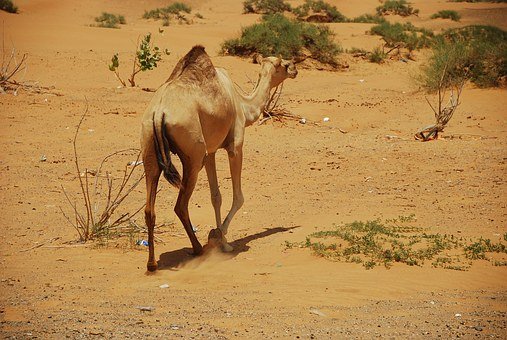
• A hump is a projection at the back of the camel composed of stored fat that is used as a source of energy when there is scarcity of food and water .
The camel has
• A Thick fur
• One or two Hump(s)
• A Long curved neck
• 4 Long strong legs with even toes covered with a thick leathery pad with hooves at the front like nails
• 2 Small ears covered with hairs inside out to prevent sand and dust from getting in. even with this, there sense of hearing is outstanding
• An eye on both side of the head with 3 eyelids (the third eyelid helps to dislodge dust or sand that lodge around the eye) and two rows of long, curly eyelashes that keep out sand and dust.
• 2 Nostrils that can be closed to avoid dust and reduce dehydration.
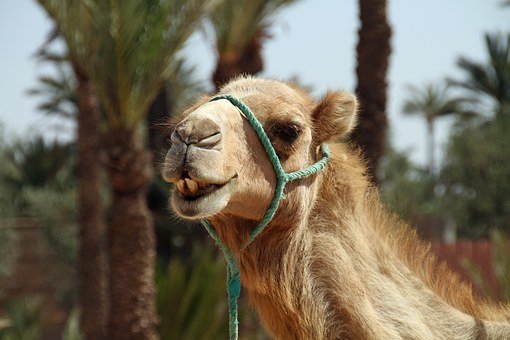
When traveling, the camel moves the front and back limb of the same side at the same time and repeat the same thing with the other side making it move in a swaying manner.
They can achieve a speed of 65km/h but not for a very long time. Though, they can sustain a speed of 40km/h.
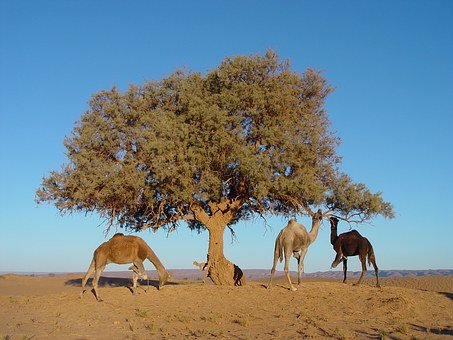
Camels are ruminant herbivores; they mostly eat grasses, desert plants and salty plants that grow in salt lake areas. Their lips and the inside of their mouth are covered with thick leathery skin that allows them to chew thorny plants that grows in the desert areas. They can also consume over 100 to 150 liters of water in just a sitting.
Amazingly, Camels can survive without food and water for about 6 months and can lose over 25% of their body weight through dehydration.
Most camels can be domesticated except for some wild Bactrian camel. They are friendly when treated well. But they may spit regurgitated food on the one who tries to provoke them.
Camels are of great importance to man providing
• Highly nutritious milk
• Meat used in preparing different local delicacies
• High quality clothing made from their fur
• Transportation
• Used in sports(such as racing) carried out by desert dwellers
REFERENCES:
https://onekind.org/animal/camel/
http://www.livescience.com/27503-camels.html
https://en.m.wikipedia.org/wiki/Camel
http://www.desertusa.com/animals/camel.html
http://camelfarm.com/camels/camels_about.html
IMAGE source @ pixabay.com
I’m a Microbiology undergraduate at the University and I’m fascinated with learning amazing stuff about life everyday.
Steemit is rekindling my love for research and writing and I will be sharing with you amazing stuff I discover everyday at school and over the course of my search for knowledge.
Steemit has also rekindled my love for research and writing and travel and learning.
Great post. I followed you and look forward to learning more here on steemit with you.
Thanks very much.
I look forward to learning more from you too especially in the area of research.
Great post. They are amazing animals. Did you know that recent studies have shown that camels origioned from north America, and that their special body features have eveloved to help them survive in snowy areas?
Wow! Interesting!
Thanks for sharing that.
The presence of their thick fur may still prove that. But most of the features they now possess are contrary to their origin like in the aspect of water conservation, a third eyelid.
I watched this TED Talk and thought you would find it interesting.
Latif Nasser: You have no idea where camels really come from
https://go.ted.com/Cyuw
Learn more about watching TED Talks on all of your favorite platforms: https://www.ted.com/about/programs-initiatives/ted-talks/ways-to-get-ted-talks
That's really amazing.
Thanks a lot for sharing that.